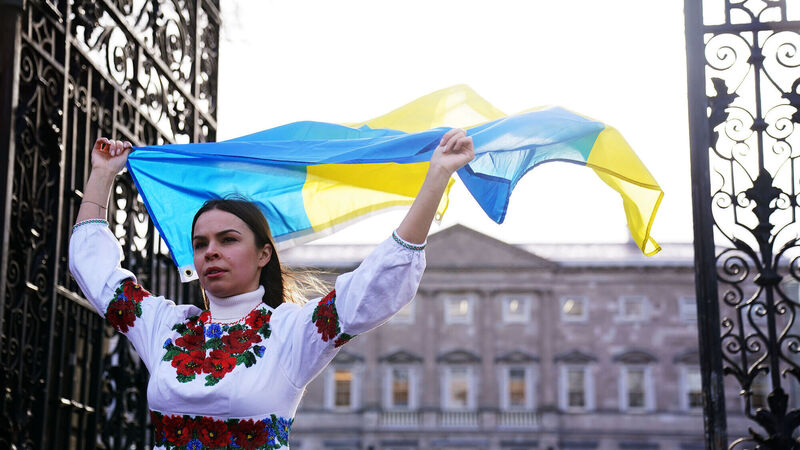Ukrainian refugees in hotels 'not good for refugees or tourism', warns Fáilte Ireland boss

Ukrainian citizen Oleksandra Keshkeval, who is originally from Odessa but has lived in Dublin for a decade, holds the Ukrainian flag outside Leinster House ahead of President Zelenskyy's address to the Oireachtas on Wednesday. Photo : Brian Lawless/PA
Ukrainian refugees remaining in emergency hotel accommodation heading into the summer season “is neither good for refugees nor good for tourism”, Fáilte Ireland boss Paul Kelly has warned.
Speaking before an Oireachtas Committee on Tourism on Wednesday, Fáilte Ireland’s CEO said that if core summer tourism accommodation stock is taken out of the system to house Ukrainian refugees, there will be “significant knock-on impacts elsewhere”.













